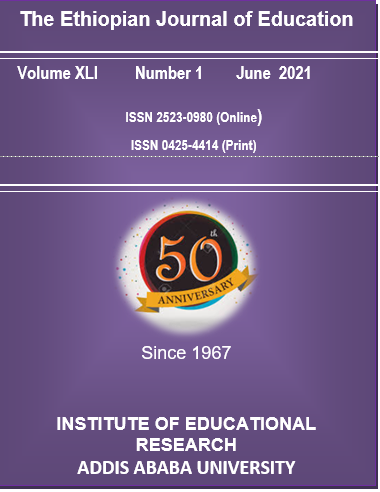Status of Teacher Education Programs in Ethiopia: Policy, Curricula and Resources
Keywords:
Teacher Education Policy, Teacher Education Programs, Curriculum Evaluation and ResourcesAbstract
The purpose of the study was to investigate the status of teacher education programs in Ethiopia focusing on policy, the frequency of curriculum evaluation, the appropriateness of curriculum contents, the adequacy of inputs/resources and candidates’ selection and recruitment criteria. The study followed descriptive research method using both quantitative and qualitative methods of data collection and analysis. In view of this, 667 samples of which 481 (465 teachers and 16 administrators) from 8 colleges and 186 (170 teachers and 16 administrators) from 8 universities were selected. The teachers were selected randomly and the administrators were selected purposely. Questionnaire, interview and staff profile form were used to collect data from teachers and administrators. The quantitative data were analyzed using descriptive statistics such as percentage, mean and t-test. The qualitative data obtained through interview were described, narrated and presented verbatim. The findings of the study revealed that there were moderate to low frequency in curriculum evaluation, moderately appropriate curriculum contents, inadequacy in quantity and poor quality of modules, inadequate resources/inputs, low participation of administrators in policy making, less emphasis on writing skills of the candidates during selection, candidates of low ability level coming to teacher education, lack of interest and motivation both on the part of the trainees and teacher educators (PGDT program), loose assessment used to evaluate students and staff - not to the qualification level required - all together made teacher education programs to be at low status. The following are recommended to improve the status of teacher education programs. There is a need for frequent evaluation of the programs and the curricula to make them more relevant to the needs of the learners and the demands of the society. The living standards of the teachers should be improved to attract able candidates to the teaching profession. It is better to select 12th grade complete to join teacher colleges and change the modality from PGDT to integrated model of teacher education. All possible attempts need to be made to provide adequate resources, to upgrade the qualification of the staff and to improve the participation of stakeholders in policy making.
